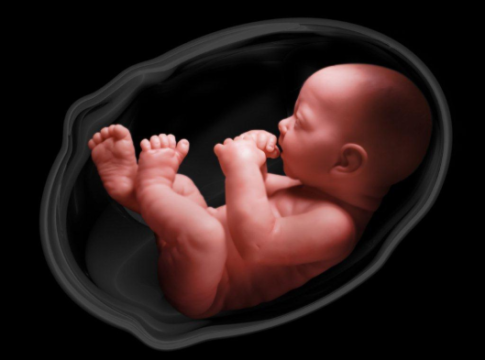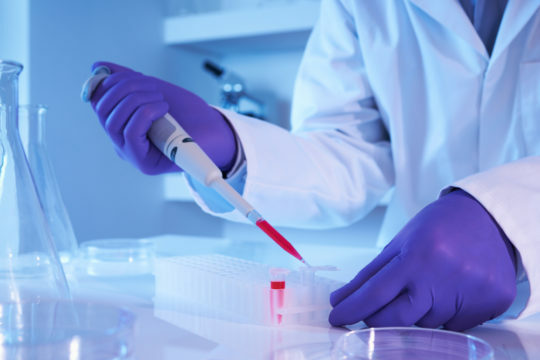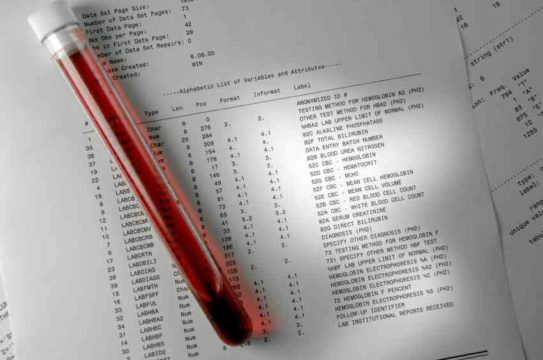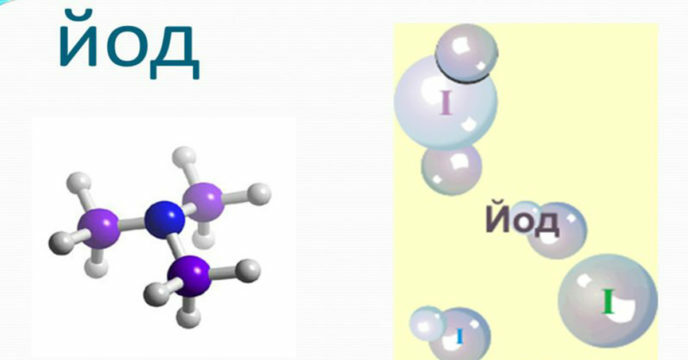Manifest hypothyroidism is a disease of the endocrine system, which manifests itself in the form of thyroid hormone deficiency. This is one of the forms of hypothyroidism, which can be identified and cured.

Description of the disease
Deficiency of thyroid hormones is the most commonly diagnosed and common disease. Hypothyroidism can be primary, secondary and tertiary. Primary hypothyroidism is diagnosed in women three times more often than men. This disease is also called a woman's.
With age, the thyroid gland begins to be destructed in women, which causes primary hypothyroidism. Causes of the disease may not always be obvious. In fact, the gland cells simply stop performing their function, or the immune system perceives them as alien.
Since there are no unnecessary hormones in the body, and each of them plays a certain role, the sooner the manifest hypothyroidism is determined, the easier it will be to make an adequate scheme of treatment and not to allow complications.
Causes of the disease
For the production of hormones, the thyroid gland requires iodine. In addition, hormonal balance is required throughout the endocrine system and the sensitivity of the receptors to thyroid hormones. Therefore, the causes of the deviations may be:
- Genetic predisposition, for example, the disease affects older members of the family, and at a certain age it is found in children.
- Congenital anomalies and structural features of the gland.
- The lack of vitamins and minerals in the diet, in particular, the lack of iodine.
- Among the risk factors, surgical intervention to remove part or all of the gland is noted.
- The disease can be the result of therapy with shock doses of thyroid drugs that inhibit the secret of hormones.
- Various hormonal failures can also cause illness. Manifest hypothyroidism is often detected with natural, but hormone-unstable conditions in women: pubertal period, pregnancy, postpartum period, menopause.
Communication with the reproductive system
Most hormones are linked together, some hormones can catalyze the production of others, or be their predecessors. One of the functions of the thyroid hormones is the regulation of embryogenesis - the formation of the placenta, the cessation of egg release, feeding the embryo and transporting nutrients.
Hormones of the gland provide the formation of the musculoskeletal system, the central nervous system until the child's own gland is formed and begins to produce hormones.
There is the concept of postpartum hypothyroidism, when the immune system restores its work to protect the body of a woman, not the fetus, but excessive system work leads to massive attacks of antibodies to the gland.

In the absence of thyroid hormones in the maternal body, the child has abnormalities of the CNS and brain function, decreased intelligence and cognitive abilities.
Symptoms
Symptomatics can manifest itself in different ways, it all depends on the stage of the disease. In addition, the symptoms are inherent and uncharacteristic, however, still indicating a deviation of the thyroid gland.
The subclinical form of hypothyroidism manifests itself rather sluggishly and can last for a long time. The manifest form develops very quickly and has a vivid symptomatology, therefore it is important to immediately consult an endocrinologist for diagnosis and treatment.
As for thyroid hypothyroidism, it can be compensated for a long time by the body and does not show any signs at all. But over time, the level of hormones will still be felt.
Primary manifest hypothyroidism manifests itself in:
- Weight gain for no apparent reason, weight does not go away from sports and diets, but continues to increase systematically.
- Psychological instability, lack of interest in everything around.
- Weakness, lethargy, insomnia, inertia.
- Weakness of hair and nails, their fragility, lamination, memory disorders.

Often such symptoms are associated with a lack of vitamins, but after the course of vitamins and minerals the situation does not change. If the treatment is not treated for a long time, the disease can turn into a burdened form, and the primary signs are supplemented with the following:
- Menstrual irregularities, in particular, delays appear more often than the earlier menstrual forms, but there is also such an option. It should be noted that bleeding or discharge in the middle of the cycle can serve as a signal about the development of diseases of the reproductive system caused by a deficiency of thyroid hormones.
- Heart rate disturbance, slow heartbeat, heavy, intermittent breathing.
- Sensation of compression of the trachea, esophagus, hoarseness.
- Puffiness of extremities develops, in more severe forms - puffiness of internal organs.
Treatment of this form begins with resuscitation, as this condition of internal organs threatens with myxedema and swelling of the brain and lungs.
Diagnostic methods
When referring to an endocrinologist, the patient is questioned about her condition, complaints, to make a clinical picture of the complaints. It should be noted that the symptoms of hypothyroidism are similar in many respects to the symptoms of diseases of the central and autonomic nervous systems, because the endocrinologist can also advise a neurologist.

Laboratory diagnostics includes the following tests:
- General blood test - according to the concentration of erythrocytes and ESR the doctor determines the presence of an inflammatory process in the body.
- The general analysis of urine - for exclusion of reproductive diseases and for an estimation of a condition of an organism.
- Blood test for hormones - allows to diagnose endocrine diseases with accuracy, the results show an increase in thyrotropin in the blood.
- Blood test for biochemistry and immunogram. Define immune proteins in the blood and plasma, exclude the development of secondary diseases, assess the resistance of the body and the effect of the immune system on the thyroid gland.
Diagnosis of hypothyroidism is hampered by the fact that the symptoms of the disease are similar to other diseases, and no specific symptoms of hypothyroidism have been identified. Therefore, only hormonal laboratory tests can find the root cause of the disease.
To assess the performance of the gland scintigraphy is performed, as well as an X-ray or tomography to confirm the diagnosis. This is only a kind of computer-based organ research that does not bring pain or discomfort to the patient. In addition to a neuropathologist, a consultation with a gynecologist, an immunologist and a cardiologist can be arranged.
Subclinical form of
Subclinical form of the disease is insidious in that its diagnosis is practically impossible. The only signal about the development of this pathology is an increase in the concentration of TSH at a normal level of thyroid hormones, for example, T4 or T3.

Usually the subclinical form of compensated hypothyroidism appears quite randomly when diagnosing other diseases and carrying out hormonal laboratory tests.
Methods of treatment
It is possible to appoint a full-fledged treatment only after conducting a full diagnosis, since the specificity of the disease does not allow one hundred percent to justify it by an endocrinologist alone.
Treatment is often continued throughout life, but this does not reduce the quality of life of the patient. Selection of drugs must be done consciously, so as not to harm the gastrointestinal tract and metabolism.
Treatment involves substitution therapy - the patient is prescribed the intake of synthetic thyroid hormones, thyroid, in particular.
You also need a proper diet and moderate physical activity. Under the right diet should be understood the rejection of fatty foods and fat, sweets and flour.
If the disease is caused by other pathologies over which the patient is working on treatment, it is possible to stop taking hormones after the root cause has been eliminated. Often, patients are removed from hormone therapy after several courses and restoration of the gland functions.
Preparations

Among drugs that synthetically replace thyroid hormones, or restore the function of the thyroid gland, appoint:
- Thyroxine;
- Alosteen;
- Veprena;
- Iodide;
- Iodalance;
- Iodomarine;
- Bagotiroks;
- Iodoostine;
- Calcitonin;
- Metisol;
- Mercazolyl;
- MicroROID;
- Sodium levothyroxine;
- Propitsil;
- Thiamazole;
- Tyrosol;
- Eutiroks.
In no case do not self-medicate any of these drugs - an incorrectly selected drug and a violation of the hormonal balance, as a consequence, can lead to serious consequences and coma.
Based on the diagnosis and clinical picture, one or two preparations with a floating intake regimen are selected. First, take small doses to assess the reaction of the body.
Then the scheme of the basic therapy is appointed, often, reception three times a day. Then every three months the patient gives repeated blood tests for hormones to assess the correctness of the treatment regimen and adjust it if necessary.
In the future, there may be attempts to reduce hormone concentrations and repeated tests to determine the function of the thyroid gland and the possibility of stopping hormone intake.



